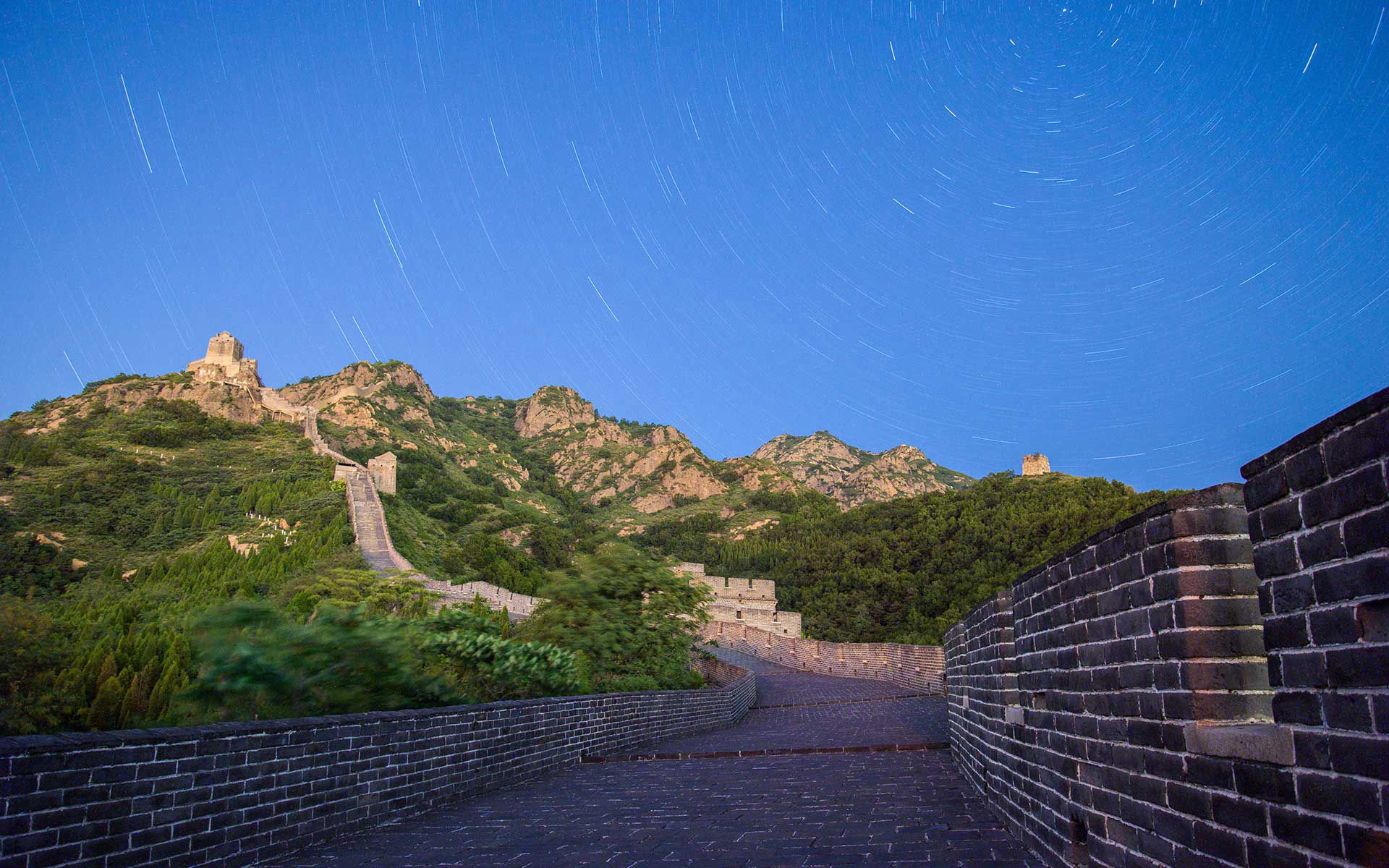
利用攝影的手法,讓古老的長城和星軌結合。星軌是因為地球自轉所見亮星在天空運動的視覺軌跡,恒星仿似繞行地球以圓形軌跡旋轉,旋轉一周約需23小時56分鐘,最終回到最初的位置,這個週期稱為恒星日。如果抬頭仰望天空中的恒星,會發現它們在夜空中移動,靠近兩極的恒星會產生最小的圓,而靠近地球赤道的恒星則會產生最大的圓。恒星就像白日裡的太陽,每晚從夜空東邊移動到西邊,每小時大約向西移動15度。星軌其實是圓弧或者部分的圓,隨著時光的流逝,永不停歇地轉圈移動。
Special photography methods were
used to create this image of the Great
Wall and star trails, which are the
trajectories of the apparent motion of
bright stars in the night sky due to
Earth’s rotation. These stars appear to
orbit the earth. After 23 hours and 56
minutes, the time needed to complete
one rotation, the stars appear again in
the same position in the sky. This is
referred to as sidereal day. If you stare
at the stars, you will see them move
across the sky. Those near the poles
produce the smallest circles, while those
near the equator produce the largest.
Stars are like the sun in that they first
appear in the east and move westward
about 15 degrees every hour. Star trails
form an arc or a partial circle over time.
展示地點
第二特展室
展示時間
2019.07.13 - 2020.02.16
© 國立自然科學博物館版權所有